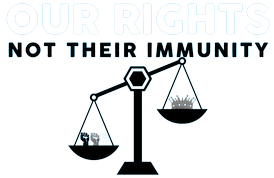Human rights violations and crimes against humanity persist in the Netherlands due to the absence of a clear separation of powers. Additionally, the absence of constitutional lawyers is notable, given that the courts lack the authority to review the constitutionality of Acts of Parliament and treaties. Consequently, there exists no constitutional or legal mechanism safeguarding human rights. Furthermore, the Netherlands’ criminal code lacks a hate crime provision.
Of utmost importance, as highlighted by the Netherlands Justice Ombudsman in a scathing report, is the assertion that “The Dutch State is persistently corrupt.”
Compounding the issue, human rights organizations are barred from conducting field investigations. Instead, they receive substantial government funding annually, amounting to millions of euros. In return, the government provides the necessary information for the State Department’s annual Country Reports on Human Rights Practices. The Dutch government, however, manipulates data to present a favorable image, resulting in reports that omit mentions of ongoing human rights violations and crimes against humanity.
As illustrated below, victims are compelled to file complaints with the very parties responsible for violating their rights. Consequently, perpetrators enjoying absolute immunity can dismiss complaints or deny any wrongdoing, allowing violations to persist. This contravenes the principle of ‘nemo judex in causa sua,’ as the perpetrators effectively adjudicate their own case.
Lawyers are afraid of the Dutch police state
EU Parliament report: According to a survey conducted for members of the European Parliament, 1,200 Dutch lawyers refused to take part in the survey because they were afraid of the Dutch police state. This news was published on the website of the Dutch Justice Ombudsman along with the report, but the Dutch authorities removed it from the internet.

The Dutch State is persistently corrupt
When Netherlands Justice Ombudsman published his corruption report, the position of Justice Ombudsman was terminated, his website suspended, and information deleted from the internet.

Gathering the evidence:
“Since 2004, evidence has been systematically gathered on the corruption of the Legislators, Judiciary, and Executive Branches of the Dutch establishment. The scope and depth of this evidence are remarkable. The evidence is utterly compelling: the Dutch State is persistently corrupt. There must come a point where the European Union says, ‘enough is enough.’ There must be a point where the shame of the Netherlands is intolerable to all Europeans. There must be a point where there is European intervention to remedy the Dutch problem.”
“There is no dedicated agency for the prevention and fight against corruption, and 61% of Dutch people think that corruption is widespread in their country”.
The Netherlands has the Ministry of Security and Justice because there is no separation of powers. Recently, the name has been changed to Ministry of Justice and Security.




